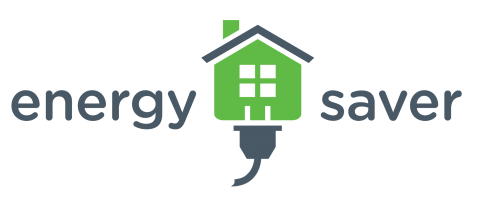
Solar energy for residences is a hot topic, and rightfully so. The amount of solar connected to the electric grid has grown exponentially in the past several years, and there are now nearly 4 million American households that are already generating their own power with solar energy.
This clean energy source is making the electric grid more dependable while helping solar homeowners save money and improve the value of their homes. With all of this interest and so much information available, Energy Saver wants to take a moment to highlight five benefits of residential solar:
Benefit 1: Solar panels are increasingly affordable
Residential solar is more affordable than ever, especially with the extension of the federal residential solar tax credit. Taxpayers can claim a 30% tax credit on the cost of solar systems on their income taxes. But be sure to install before January 1, 2033, when the tax credit is set to decrease to 26%.
There are also a number of different financing options to make purchasing solar systems easier and with less money upfront. The monthly amount owed on a solar loan is typically less than an average utility bill.
Benefit 2: You can save money by going solar
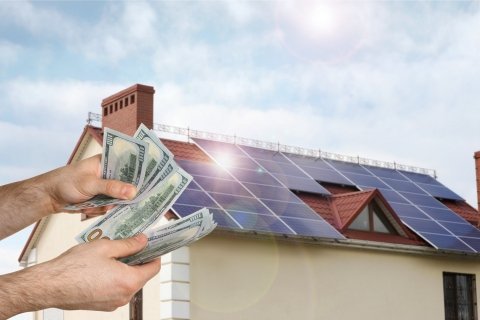
Solar offers great potential to save money on your monthly utility bill, and with utility bills trending upward, solar is likely to remain a good money-saving option for years to come. The amount you save depends upon how much electricity you consume, the size of your solar energy system, and how much power it is able to generate. You may also opt for a leased, third-party owned system that allows a homeowner to host a solar energy system on their rooftop and purchase back the electricity generated at a discounted rate, which is not only is often less than utilities charge customers, but also allows electricity rates to be locked in for years.
Benefit 3: You can keep the lights on when the grid goes down
Generating your own solar power can give you the freedom to keep the lights on if there’s a disruption in power. Residential solar energy systems paired with battery storage—generally called solar-plus-storage systems—provide power regardless of the weather or the time of day without having to rely on backup power from the grid. As battery technology improves and financial incentives for energy storage go into effect, deciding to invest in battery storage makes sense for more households across the nation.
Benefit 4: Solar will often increase the value of your home
Buying a solar energy system will likely increase your home’s value. A Berkeley National Laboratory study found that solar photovoltaic panels are viewed as upgrades, just like a renovated kitchen or a finished basement, and home buyers across the country have been willing to pay a premium for a home with an average-sized solar array. As for third-party owned systems, it appears that the impact is largely neutral but can occasionally add value, especially for prepaid leases.
Benefit 5: Solar systems work in a variety of climates
Solar panels only need one thing to generate electricity — sunshine! Even in the winter when there are fewer hours of daylight, there is still a sufficient amount to power the average American home. That makes solar viable even in Alaska with longer, colder winters. The U.S. Department of Energy’s Solar Energy Technologies Office (SETO) is dedicated to ensuring solar panels can withstand the elements no matter your location. SETO funds five Regional Test Centers across the country — each in a different climate — to make sure panels perform as best they can, regardless of climate or weather.
You do not need to own a house to go solar
Do you rent your house? Or do you live in a high-rise condo building? Not a problem. Community solar programs allow multiple people to benefit from a single, shared solar array. These arrays can be installed on your building or offsite in a different location. Purchasing costs and the installation of the solar energy system are then divided among all of the participants. All are then able to buy into the shared system at a level that best fits their budget. The portion you share can even be negotiated into the sale of your place should you move!
For more answers about the “going solar” process, look at SETO’s Homeowner’s Guide to Going Solar.
Subscribe to Energy Saver Updates
Subscribe to receive updates from Energy Saver, including new blogs, updated content, and seasonal energy saving tips for consumers and homeowners.
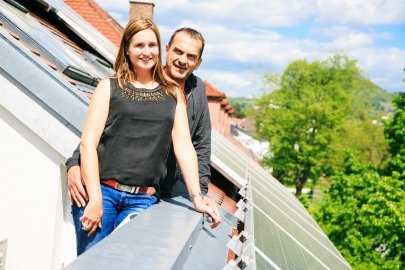
Using Solar Electricity at Home
Learn more
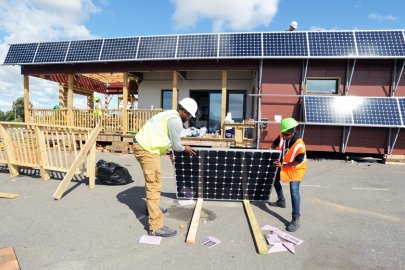
Planning a Home Solar Electric System
Learn more
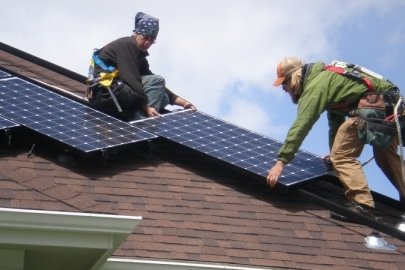
Planning for Home Renewable Energy Systems
Learn more
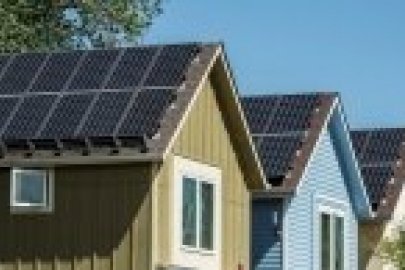
Benefits of Residential Solar Electricity
Learn more


